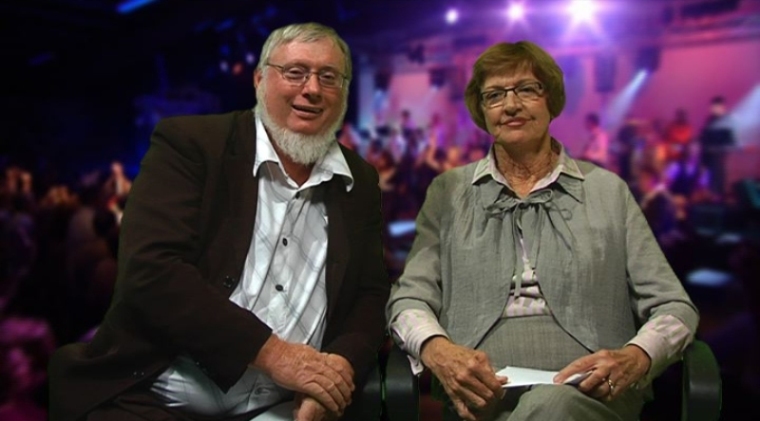
As if it were the spiritual echo of the smoke that cast a shadow over this year’s Australia Open, everyone involved—from those running Tennis Australia to the most inexperienced player—found themselves trapped beneath another shadow, one that cast a pall on everything they did.
Tennis Australia found themselves faced with a decision that could not be avoided, where they could no longer prevaricate or keep their options open. Even inaction would be making a choice. Whatever they decided a significant percentage of the Australian public would be furious.
In the lead up to the event, opposing views were given a national stage, and the nation was watching. There was no way it could be buried between other events and kept so low profile it would slip under the radar. Everyone knew that, one way or another, it would be decided now.
The Court is in Session
I am, of course, talking about the debate over whether Margaret Court’s achievements in tennis (winning more major titles than any other player with 19 women's doubles and 21 mixed doubles titles, giving her a record 64 major titles overall—a record that remains unbroken today) would be honoured during the Open.
Having set the precedent earlier by doing the same for Rod Laver, Tennis Australia were trapped by expectation. To not extend the same honour to someone who is universally accepted as the sport’s greatest ever woman player, as well as having a genuine claim to the title of the greatest ever tennis player full stop, couldn’t be seen as anything other than deliberate.
Even Handed Equality
Normally, offering equal recognition to the sporting achievements of women as we give men wouldn’t even come up for discussion—it’d just be assumed it would occur as a matter of course. From the moment Tennis Australia created the expectation that they needed to celebrate both genders to demonstrate women were valued in the sport, people knew that Margaret Court would quite rightly feel entitled to the same treatment as Rod Laver.
Tennis Australia’s misfortune was that Margaret Court was a polarising figure, with many fans believing that not only should Tennis Australia not honour her, they should publicly distance themselves from any association with her, including taking her name off the Margaret Court Arena, replacing it with a more appropriate symbol.
Courting Controversy
The controversy stemmed from Ms Court’s very public statements on issues such as homosexuality and transgenderism. After retiring from tennis, Ms Court embarked on a new calling as a minister in a Christian denomination that adhered to a strict interpretation of Biblical values, and saw the traditional family unit as the only acceptable standard for relationships.
Many saw the opinions she regularly expressed in her sermons, or in the media, as not just outdated, but harmful and inciting hatred, especially after her very visible participation during the marriage equality vote. Labelling her views as completely antithetical to Tennis Australia’s commitment to inclusivity, they argued that continuing their association with her, through her arena or by publicly honouring her achievements in the same way as Laver, would be condoning her values.
The Loyal Opposition
However, there were many people who were just as loudly insisting that Tennis Australia were obligated to extend the same treatment to her as Laver, and that it would be an injustice if she were snubbed. Some of those voice were people who agreed with her opinions, and saw her as bravely upholding unpopular truths despite a hostile world trying to silence her.
There were also plenty who felt that her opinions didn’t matter, that it was her achievements as a tennis player that mattered, and that what else she did after them was irrelevant. They contended that you needed to separate the athlete from the person, and that it was what you did on the field that counted when judging your place in your sport’s pantheon.
Everyone had an opinion, and made sure they shared it, and Tennis Australia were going to be damned by someone no matter what they did. Their eventual decision isn’t the final word on the matter either. It’s a debate we will see played out again and again, in sport and in other arenas, with different people and different opinions being torn down and defended—but essentially the same argument at its heart.
The Verdict on the Court
Now, I am not even going to attempt to argue the rights and wrongs of Ms Court’s opinions here—everyone reading this already has an opinion that I am not going to change. You see, her opinions are not actually what matters about this discussion. Whether she is right or wrong, or whether they are good or bad, shouldn’t make a difference. What we really should be concentrating on is the questions it poses to the people holding each position.
If you believe that some opinions are simply unacceptable, and the private person cannot be separated from the public persona or other achievements, would you feel the same if it was an opinion you agreed with? Who decides what is acceptable or not? The government? Public opinion? Corporate interests? What happens when they get it wrong, as has happened so many times before? What happens when society shifts and suddenly you are on the other side?
Will the defendants please rise
Those who agree with Ms Court’s views, and are demanding her inclusion, would you be as quick to defend other people’s rights to free speech? Will you protect the free speech of people you disagree with, like a Muslim cricketer refusing to wear a brewery logo on their shirt, or are your convictions not worth fighting for when it is your neighbour being mistreated?
And those who say that nothing matters but what you do on the field when it comes to your legacy, is that all we weigh up when discussing who can be greats? Do we still talk about Jesse Owens just because he won a gold medal like hundreds of others, or is it because he was a black man who did it with Hitler watching? Is Jackie Robinson simply the sum of his statistics, or do we see the man who broke the colour line and forced people to admit their prejudice had no basis in facts?
Cross Examination
If we can’t answer them, or choose to ignore them, then our opinions have no value. It’s only when we are willing to ask ourselves uncomfortable questions, and consider the implications they have to our preconceptions, that we can start to really explore what is right...and what is wrong.

David Goodwin is the former Editor of The Salvation Army’s magazine,War Cry. He is also a cricket tragic, and an unapologetic geek.
David Goodwin archive of articles may be viewed at http://www.pressserviceinternational.org/david-goodwin.html